1. “Freedom Fries” Instead of Honest Diplomacy
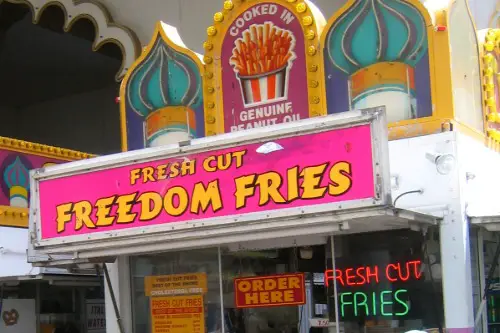
In 2003, France didn’t support the U.S. invasion of Iraq, and instead of dealing with diplomatic tension, Congress cafeterias renamed French fries to “freedom fries,” according to The State Press. It was the culinary equivalent of slamming a door during an argument. Lawmakers hoped it would send a message of patriotism, but mostly it just made people chuckle at the menu. Unsurprisingly, France was not moved by the potato protest.
The term was eventually dropped, and fries went back to being French. But for a while, “freedom fries” lived as a proud symbol of American pettiness. It was much easier than having a tough talk about foreign policy. And in the end, the fries stayed the same—just with a side of nationalism.
2. “Pre-Owned Vehicles” Instead of Used Cars
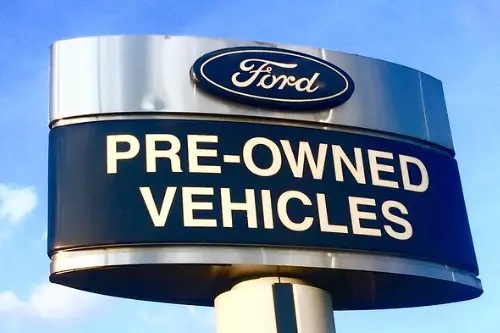
At some point, “used car” started sounding a little too… used. So dealerships across America leaned into the phrase “pre-owned,” which sounds like something once loved by a wealthy aunt. The term made even the rustiest hatchback seem like a luxury item. It was a simple language swap to make old cars feel shiny and new.
Of course, nothing about the car itself changed—it still had the same miles, quirks, and questionable air freshener. But calling it “pre-owned” gave salespeople a way to dodge the word “used.” It’s marketing magic: polish the language instead of the product. And somehow, it works almost every time.
3. “Funemployment” Instead of Joblessness
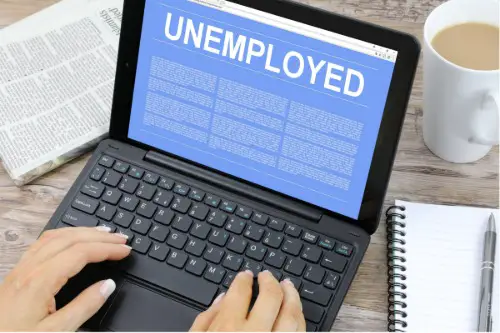
During the 2008 recession, a cheerful little term popped up: “funemployment.” It was meant to reframe being out of work as a time for self-discovery, hobbies, and midday Netflix binges, according to Investopedia. While some genuinely embraced the break, many others were just stressed about bills. Still, the word caught on as a way to put a sunny face on a rough situation.
It was less about fixing unemployment and more about making it sound like a vacation. “Funemployment” showed up in lifestyle blogs and news stories, usually with tips like “start a garden” or “take up yoga.” Which is nice, sure—but also a bit of a dodge from the deeper economic issues. At least people got good at baking bread?
4. “Curated” Instead of Randomly Selected
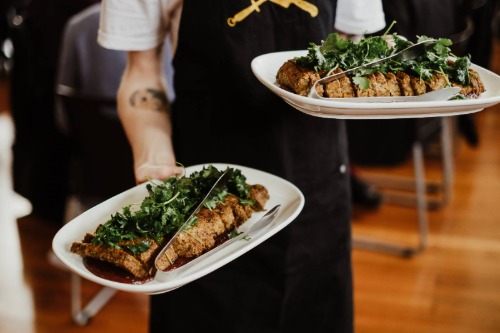
Somewhere along the way, the word “curated” escaped from art museums and made its way into every corner of retail. Suddenly, everything from playlists to subscription boxes to Amazon storefronts were being “carefully curated,” The Guardian reports. What it really meant, half the time, was “we picked some stuff and hope you like it.” But “curated” made it sound like a thoughtful, personal experience.
It’s the kind of word that tricks your brain into thinking you’re part of something exclusive. Even if it’s just a box of snacks you didn’t ask for. It didn’t improve the products, just how they were framed. Which, honestly, is kind of an art in itself.
5. “Customer Experience Specialist” Instead of Retail Worker

Retail and service jobs started getting title glow-ups in the 2010s. “Cashier” became “customer experience specialist,” and “barista” sometimes turned into “beverage artisan.” These rebrands didn’t change the job duties—just the name on the nametag. But they gave workers (and companies) a fancier image without the matching raise.
It was branding meant to elevate everyday work into something more boutique. Sometimes, it helped workers feel more respected—but it didn’t fix burnout or low pay. A title can only do so much when you’re deep in the holiday shopping rush. Still, “specialist” does sound cooler than “minimum wage.”
6. “Wellness Checks” Instead of Surprise Rule Enforcement

When colleges started sending staff to check in on students in dorms, they often called them “wellness checks.” That sounds gentle and caring—like someone’s bringing soup and a blanket. But in reality, it was sometimes more about making sure there were no parties, candles, or contraband. The phrase softened what felt like a random inspection.
It was part of a larger trend of wrapping enforcement in soft language. By calling it a “check-in,” administrators hoped students would be less defensive. But most knew it wasn’t really about wellness—it was about rules. And maybe making sure no one smuggled in a toaster oven.
7. “Brand Ambassador” Instead of Unpaid Marketer
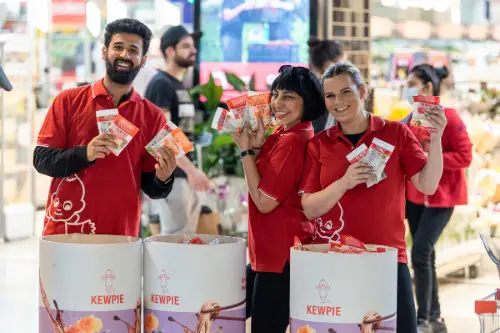
Colleges, start-ups, and even major brands love handing out the title of “brand ambassador.” It sounds like you’ve just been handed a diplomatic role at the U.N., when really it means you’ll post about a product on Instagram for free samples. You might hand out stickers, talk up a new app, or host a low-budget event. And you usually do it all in exchange for swag or “experience.”
The title makes it feel official, even prestigious. But it’s mostly marketing on the cheap. Still, there’s something undeniably fun about telling people you’re an “ambassador.” Just don’t expect a paycheck with that lanyard.
8. “Learning Pods” Instead of DIY School

During the COVID-19 pandemic, parents scrambled to create “learning pods”—small groups where kids could learn together at home. It was basically a homegrown version of school, dressed up with a trendy new name. “Pod” made it sound cozy, safe, and scientific—like dolphins, but for education. In reality, it was a last-minute solution to a big systemic problem.
The rebrand helped parents feel more in control during a chaotic time. But it didn’t solve the issues of school access, resources, or equity. It was more about patching the gap with duct tape and calling it a feature. Still, many kids made it through thanks to these creative little pods.
9. “Snackable Content” Instead of Really Short Stuff
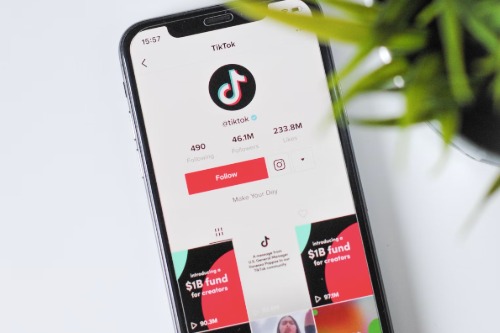
When internet attention spans started shrinking, marketers leaned into “snackable content.” It’s a cute way of saying “very short videos, tweets, or articles you can skim on your lunch break.” Calling it snackable made it sound intentional—not just bite-sized because no one has time anymore. It reframed our scrolling habits as something fun and manageable.
Instead of addressing information overload, we just embraced it with better branding. Snackable sounded like a treat, not a symptom of burnout. It didn’t fix our fractured focus—it just made it marketable. But hey, at least it pairs well with actual snacks.
10. “Tiny House Movement” Instead of Can’t Afford a Bigger One

The “tiny house movement” promised freedom from clutter, simplicity, and a new way of living. But for many people, it was less about minimalism and more about skyrocketing housing costs. Calling it a movement made it feel trendy, like a choice—not a last resort. And TV shows helped sell the dream with compost toilets and cleverly hidden storage.
Living in 200 square feet became a lifestyle, not a compromise. But the glossy branding didn’t always match the reality of zoning laws and freezing pipes. Still, people embraced it as empowerment rather than financial necessity. Because it’s easier to sell downsizing when it sounds like a revolution.
11. “Creative Differences” Instead of We Totally Fought

In Hollywood, when a star leaves a project or a showrunner gets the boot, the phrase “creative differences” usually pops up. It sounds polite and professional, like two artists gently parting ways. But often, it means someone got fired or there was a major meltdown behind the scenes. The phrase keeps things vague while hinting at drama.
It’s the entertainment industry’s go-to for smoothing over internal chaos. Nobody wants to admit they argued over script notes or clashed on set. So instead, it gets filed under “creative differences,” and everyone moves on. It’s the PR version of saying “it’s not you, it’s me.”
12. “Reaccommodated” Instead of Kicked Off a Plane

In 2017, United Airlines faced backlash after a passenger was forcibly removed from a flight—and their spokesperson described it as being “reaccommodated.” The word choice caused instant outrage because it sounded like he’d been offered a spa day, not dragged down the aisle. The company tried to soften the PR blow with a bizarrely neutral phrase. But no one was fooled by the corporate thesaurus.
Instead of addressing overbooking policies or passenger treatment, they reached for the gentlest word possible. “Reaccommodated” became a punchline, not a solution. It’s a perfect case of using branding to sidestep responsibility. And proof that sometimes, you really can’t talk your way out of a mess.
This post 12 Times America Tried to Rebrand Something Instead of Fixing It was first published on American Charm.


